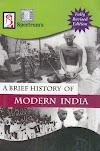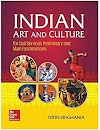Sessions of the Parliament
Sessions of the Parliament - There are mainly three sessions of the parliament in a year.
- Budget Session (February to May) - Longest session
- Monsoon Session (July to August)
- Winter Session (November to December)
Under Article 85, parliament shall meet in such a way that not more than 6 months lapses between the two successive sessions.
However as per convention established in India, Parliament met in the form of three regular sessions every year and may also met in Special session.
Regular or Special sessions of the parliament are conveyed by the President on the advice of the Council of Ministers.
Budget Session- It is the first session of the three regular sessions held generally from February to May.
It is the longest and the most important session of the year.
The session begins with Presidential address to the joint session of both the houses of the Parliament.
Presidential Address - President addresses the houses the parliament at the commencement of 1st session of the year and also at the 1st session held immediately after the general election to the Lok Sabha.
It is comparable to the address from the throne delivered by the British monarch under the English system or the state of union address delivered by the American president.
President himself is the presiding officer of the joint session at the time he is addressing the session and himself deals with any kind of disturbances accordingly.
The speech given by the president is prepared by the Union Council of Ministers and is nothing but a policy statement/vision of the Government of India which contains the review of various achievements and activities of the government of India in different fields including international affairs during the previous year.
It also contains the main items of legislative business which are supposed to be brought before the parliament during the sessions to be held that year.
After the speech, the house must separately meet and deliberate upon the content of the speech. At the end of the deliberation each house adopts a motion called Vote of Thanks to the Presidential address which if passed by Lok Sabha amounts to Lok Sabha expressing faith in the Council of Ministers.
And if it is rejected by the Lok Sabha, it means lack of confidence of Lok Sabha in the Council of Ministers, i.e., defeat of Council of Ministers in the Lok Sabha and the government stands censored (it automatically does not amount to the fall of government) and now the government has to prove its majority within a reasonable time.
This way Council of Ministers actually prove their majority atleast once in a year in the form of Vote of Thanks to the presidential address.
Note - If Vote of Thanks is defeated in the Rajya Sabha, then it does not amount to the loss of confidence of Council of Ministers and the CoM need not to prove its majority.
HOTs
Is Special Session is mentioned in the Constitution?
- Yes, Under Article 352, Special session to revoke the National Emergency.
xxx
Terms related to the Sessions of the Parliament
- Adjournment → Break (midway) by Presiding officer
- Prorogation → Session is over by the President
- Dissolution → life of Lok Sabha is over by the President
Adjournment - It means a short break or a recess within the ongoing session of the parliament.
Adjournment is an act of house which is exercised by the Presiding officer of the house. It does not bring the session of the parliament to an end.
Adjournment Sine Die - If the house is adjourned for an indefinite period without fixing the date or time for the next meeting, this is called Adjournment sine die.
Prorogation - Prorogation of the house of the parliament is done by the President on the advice of the Council of ministers.
The act of prorogation brings a session of the parliament to an end.
After prorogation, the house can meet again in the form of a new session if summoned up fresh by the president on the advice of the Council of ministers.
All the pending business and bills before the parliament shall not lapse with the prorogation of the house (except the bill/resolution seeking removal of the judges of the Supreme Court or High Court).
Dissolution - Dissolution of Lok Sabha is done by the president on the advice of the Council of ministers.
Dissolution beings the very life of the Lok Sabha to an end. After dissolution elections are held to form a new Lok Sabha and the government.
All the pending bills and business shall lapse with the dissolution of the Lok Sabha. However, the bills falling of one of the 4 following categories will not lapse with the dissolution of Lok Sabha -
- If the bill is passed by both the houses but is pending for the assent of the president will not lapse with the dissolution of Lok Sabha.
- The bill passed by both the houses but returned by the president for reconsideration of the houses, then the bill shall not lapse with the dissolution of the Lok Sabha.
- A bill notified for Joint Sitting before dissolution shall not lapse with the dissolution of the Lok Sabha.
- A bill pending in Rajya Sabha but not taken up by the Lok Sabha shall not lapse with the dissolution of Lok Sabha.
Now the newly elected Lok Sabha takes up the bills and acts accordingly.
i.e.,
- Bill → passed by both houses → sent for presidential assent (in this time Lok Sabha dissolves) → then, the bill does not lapse
- Bill → passed by both houses → sent for presidential assent → sent for reconsideration (in this time Lok Sabha dissolves) → then, the bill does not lapse
- Bill → deadlock → joint sitting is notified (in this time Lok Sabha dissolves) → then, the bill does not lapse
- Rajya Sabha → introduced bill (in mean time, Lok Sabha dissolves) → then, the bill does not lapse
xxx
Quorum - It is the minimum number of members required to be present in the house before it can transact any business.
It is one-tenth (1/10th) of the total number of members in the house including the presiding officer.
Lame-duck Session - Last session of the existing Lok Sabha after which a new Lok Sabha has been elected is called Lame-duck session.
Those members of Lok Sabha who could not get re-elected to the new Lok Sabha are called Lame-ducks.
Question Hour - 1st hour of every parliamentary sitting is called question hour. During this time members ask questions and ministers/government usually give answer.
The questions asked are of four kinds -
- Starred question (*) - It requires oral answer and hence supplementary questions can follow.
- Unstarred question - It requires written answer and hence supplementary questions cannot follow.
- Short notice question - It was asked by giving a short notice of not more than 10 days. it is answered orally.
- Question to private member - A Question may also be addressed to a Private Member (Under Rule 40 of the Rules of Procedure and Conduct of Business in Lok Sabha), provided that the subject matter of the question relates to some Bill, Resolution or other matter connected with the business of the House for which that Member is responsible. The procedure in regard to such questions is same as that followed in the case of questions addressed to a Minister with such variations as the Speaker may consider necessary. The procedure in regard to such question is the same as that followed in the case of questions addressed to a minister.
Colour code for the questions
- Starred question → Green
- Unstarred question → White
- Short notice question → Light pink
- Questions to private member → Yellow
Zero Hour - It is neither mentioned in the Constitution nor in the Rules of Procedure. It is an informal device available to the members to raise matters without any prior notice.
Zero hours starts immediately after the Question hour and lasts until the agenda for the day is taken up, i.e., period between Question Hour and Agenda of the day is Zero hour.
It is an Indian Innovation.
Previous Article - Types of bills
Next Article -
Notes on other subjects
Optional Subject
Note - This is my Vision IAS Notes (Vision IAS Class Notes) and Ashutosh Pandey Sir's Public Administration Class notes. I've also added some of the information on my own.
Hope! It will help you to achieve your dream of getting selected in Civil Services Examination 👍





0 Comments